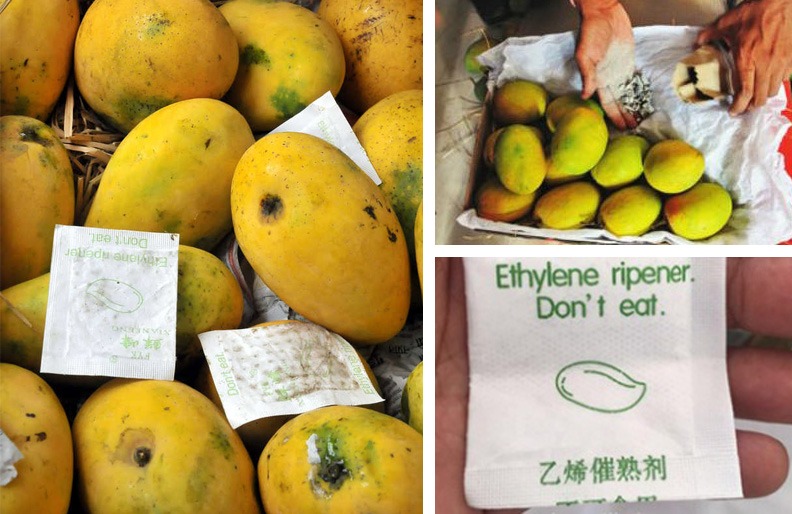 FSSAI Direction For Fruit Sellers: ‘Food Safety and Standards Authority of India’ i.e FSSAI has alerted fruit traders and food business operators (FBOs) operating fruit ripening chambers to ensure strict compliance of the ban on calcium carbide for artificial ripening of fruits, especially during the mango season. FSSAI has advised the food safety departments of states, union territories to remain vigilant and take strict action against those involved in such illegal activities as per the provisions of the Food Safety and Standards Act, 2006 and the rules and regulations made under it.
FSSAI Direction For Fruit Sellers: ‘Food Safety and Standards Authority of India’ i.e FSSAI has alerted fruit traders and food business operators (FBOs) operating fruit ripening chambers to ensure strict compliance of the ban on calcium carbide for artificial ripening of fruits, especially during the mango season. FSSAI has advised the food safety departments of states, union territories to remain vigilant and take strict action against those involved in such illegal activities as per the provisions of the Food Safety and Standards Act, 2006 and the rules and regulations made under it.
Calcium carbide is dangerous for health
Calcium carbide, commonly used to ripen fruits like mango, releases acetylene gas which contains harmful traces of arsenic and phosphorus. These substances, also known as ‘masala’, can cause serious health problems such as dizziness, frequent thirst, irritation, weakness, difficulty in swallowing, vomiting and skin ulcers. Moreover, acetylene gas is equally dangerous for those who deal with it. There is a possibility that calcium carbide may come in direct contact with fruits and leave traces of arsenic and phosphorus on the fruits.
It is strictly prohibited
Due to these hazards, the use of calcium carbide for ripening fruits has been banned under Regulation 2.3.5 of the Food Safety and Standards (Prohibition and Restrictions on Sales) Regulations, 2011. This regulation clearly states, “No person shall sell or offer for sale or expose or keep in his premises for the purpose of sale fruits under any description which have been artificially ripened by the use of acetylene gas, commonly known as carbide gas.”
Ethylene gas allowed
Considering the issue of large scale use of banned calcium carbide for fruit ripening, FSSAI has permitted the use of ethylene gas as a safer alternative for fruit ripening in India. Ethylene gas can be used in concentrations up to 100 ppm (100 μl/L) depending upon the crop, variety and maturity. Ethylene, a naturally occurring hormone in fruits, controls the ripening process by initiating and controlling a series of chemical and biochemical activities. Treatment of unripe fruits with ethylene gas triggers the ripening process naturally until the fruit itself starts producing sufficient quantity of ethylene. Further, Central Insecticides Board and Registration Committee (CIB & RC) has approved Ethephon 39% SL for uniform ripening of mangoes and other fruits.
FSSAI Guidelines
FSSAI has published a This document suggests the food business operators to follow the process of artificial ripening of fruits by ethylene gas. The document contains a Standard Operating Procedure (SOP) covering all aspects of artificial ripening of fruits by ethylene gas such as restrictions, ethylene ripening system/chambers required, handling conditions, sources of ethylene gas, protocols for application of ethylene gas from different sources, post treatment operations, safety guidelines etc.
‘Strict action will be taken’
If any wrong practice of any use of calcium carbide or use of artificial ripening agents for artificial ripening of fruits is noticed by the consumers, the same may be brought to the notice of the concerned State Food Safety Commissioners so that action can be taken against such persons.
 Suspense Crime Sach Ka Dam
Suspense Crime Sach Ka Dam


